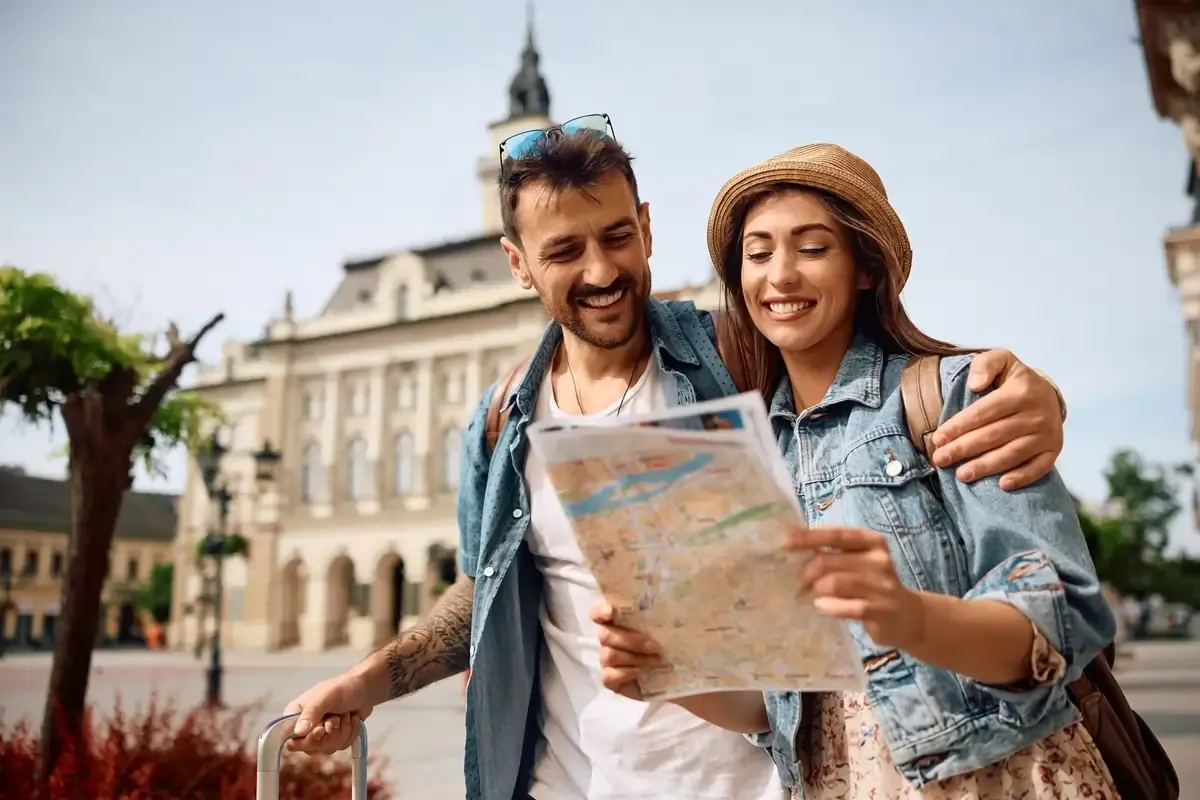travel hacks
5 Tips for your first international travel
International travel doesn't have to be stressful!
Embarking on your first journey to explore new destinations can be an exhilarating and rewarding experience. Whether you're jetting off to a vibrant city, relaxing on a tropical beach, or immersing yourself in a cultural adventure, careful planning and a few key considerations can make your first-time travel smoother and more enjoyable. Here are some essential tips to ensure a memorable and stress-free trip.

1. Plan ahead, but do not over-plan!
Before you set foot on unfamiliar ground, take the time to research your destination. If you are overwhelmed, start with the essentials — understand the local currency and payment options, transportation options, and any visa requirements.
You can also have a shortlist of attractions and activities that you plan to visit, or restaurants that you intend to eat at. Make your reservations and bookings in advance — and if possible, find options that offer free cancellation in case anything crops up.
But while it is useful to have a rough idea of where you want to go and visit, be careful not to over-plan and pack your itinerary with too many activities. While planning is crucial and it might be tempting to want to see everything, it is important to understand that that is not always possible. Delays, changes in weather, or unexpected opportunities may arise.
Over-planning and overstuffing your itinerary could also easily lead to travel fatigue; or you might find the actual experience underwhelming. Embrace the spontaneity of travel and be open to adjusting your itinerary. Some of the most memorable experiences can come from unexpected detours and unplanned adventures.
A good way to plan will be to have a list of places that are must-sees, while others are good-to-see. That will help you to prioritise which activities or attractions to visit given practical constraints. If you are still not sure where to start, joining a walking or guided tour is a pretty good idea!
2. Pack light and smart
When packing your luggage, it is very easy to overpack. You might think that you should bring along everything just in case you need them. But lugging around a heavy suitcase can quickly become tiresome.
Focus on versatile clothing items that can be mixed and matched, and consider the climate of your destination. Consider if the weather is suitable for you to re-wear some of your clothings. If you will be traveling for a longer duration, plan to make use of laundry services instead of bringing a new set of clothes for each day of your trip.
But while you want to be careful of overpacking, don't forget essential travel items like adapters, chargers, and any necessary medications. Rolling your clothes instead of folding can save space, and packing cubes can help keep things organized.
Have a travel packing list, and start with packing the essentials. Only after you have packed your essentials should you consider if you want (and if you really need) to bring additional items.
It is also useful to keep a spare set of clothings in your carry-on bag in case your luggage gets lost!
3. Learn about local etiquette, customs, and safety tips
Aside from researching about places to go and attractions to see, it is also useful and important to do some research about local etiquette and customs, as well as safety tips and concerns of your travel destination.
Safety should always be a top priority when traveling. Learn about safety tips, places you should avoid, as well as common scams and other concerns that you should be aware of.
Keep a copy of important documents, such as your passport and travel insurance, in a separate location from the originals. Be aware of your surroundings, especially in unfamiliar areas. Avoid displaying valuables openly, and use secure transportation options, such as reputable taxi services.
Understanding and respecting local customs can go a long way in making your trip enjoyable. Research common etiquette practices, such as appropriate dress codes and greeting customs. This cultural awareness not only shows respect for the local community but also enhances your overall travel experience. While not absolutely necessary, learning some basic phrases of the local language could also be very useful for your trip!
4. Stay connected
Ensure that your communication needs are covered while abroad. From international roaming to getting a travel eSIM, there are many different options that can help you to stay connected as you travel. Do some research and find the best option for your travel needs.
If you have an eSIM-compatible device, getting a travel eSIM is one of the best options. A travel eSIM offers a good balance of convenience and cost. With an abundance of options available, deciding which option to go for can sometimes be overwhelming.
Simplify your problem by breaking your needs down into smaller pieces. By understanding where you will be traveling and how much data you will need, it will make it much easier for you to decide on a plan.
Get a Nomad eSIM for your next trip
Nomad offers data plans in over 200 countries, and you can be sure to find one that is suitable for your travel needs. And if you will be traveling across multiple countries, there are also regional plans available so you can stay seamlessly connected as you hop between countries. Data plans are available from as low as $1.50/GB.
If you are unsure about how much data you need for your trip, Nomad also has a Data Calculator that can help you find the plan that is most suitable for you. Also check out our blog post on data-saving tips when traveling to keep your data usage in check when traveling.
Nomad also has a 24-hour customer support team. So, in the event where you face difficulties while using your eSIM, rest assured there will be someone available to help you resolve your issues!
5. Buy travel insurance, and have a list of emergency contacts available
Travel insurance is one of those things that you think you might not need. Or, rather, it is one of those things that you pay for, and you hope you don't ever have to use it — so maybe then, you would rather not pay for it.
While you might be tempted not to get travel insurance, having travel insurance will give you a peace of mind when traveling. Be it flight delays, luggage claims, or other unexpected events that happen during your travels, having travel insurance could be very helpful.
Although having travel insurance might not be able to make up for loss time or experiences, it will at least help to alleviate financial concerns and financial losses. This is especially in the unfortunate case where you find yourself having to visit the clinic or hospital at the destination. With a travel insurance available, you will not need to worry as much about the cost, and you can seek the treatment you need even while overseas.



